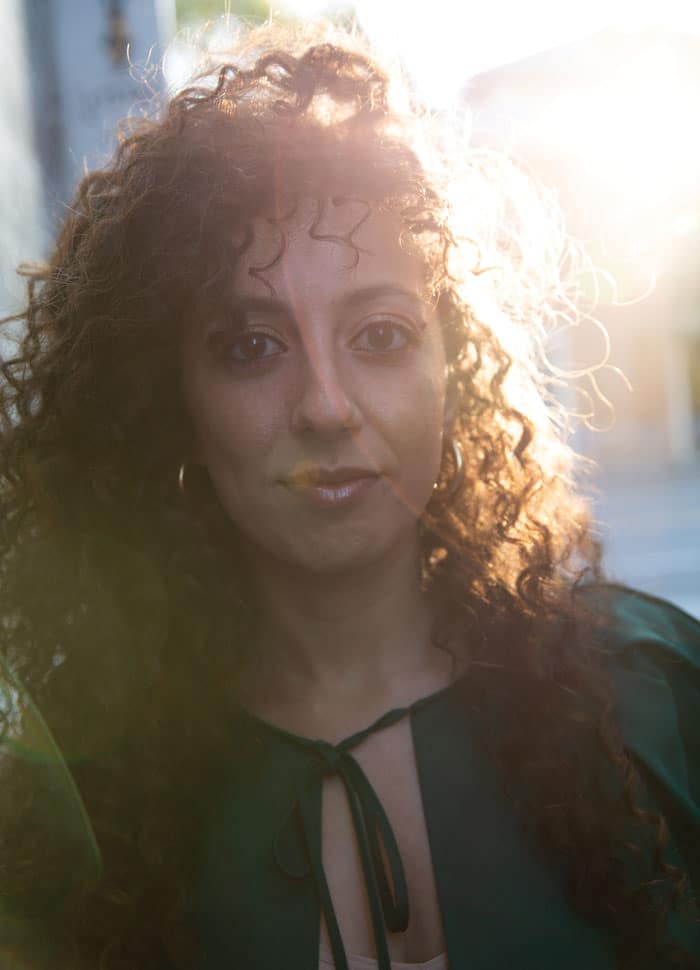 Rabbi Tarlan Rabizadeh
Rabbi Tarlan Rabizadeh Rabbi Tarlan Rabizadeh didn’t exactly take the path her parents envisioned for her. The child of Iranian immigrants, they expected her to become a lawyer, work in hospitality or own a business. They didn’t think she’d gravitate towards religion or take it so far as to become a rabbi.
“I really grew up in the insular Persian community and broke out to become a rabbi,” she said. “In Iran, being someone who was religious was sort of backwards. You wanted to hang out with the Muslim elite. Judaism was done in the house and it wasn’t something you brought into the public sphere if you wanted to be a high-class citizen of the world.”
But Rabizadeh couldn’t help it; she was drawn to Judaism since a young age and wanted to learn more. When she was a sophomore at Milken Community High School, she took a class with Rabbi Sharon Brous of IKAR that sparked her interest to learn more.
“[Rabbi Brous] helped me find all the roads and chiseled them together in a way,” she said. “I’m not sure where I’d be without her and that class.”
One of Brous’ teachings that stuck with Rabizadeh was a story about Hillel and Shammai, who disputed over halacha. The two rabbis weren’t talking to one another, and Rabizadeh said the female voice of God came down from the heavens and asked both of them to argue their cases. In the end, it was decided that Hillel was right.
“The only way we can ever come into a relationship with someone else is hear their case and try to learn and grow from it. If you only respond, you are not listening.”
“The question is, why does one side win?” said Rabizadeh. “The answer is because when Hillel argues, he explains Shammai’s side first. Shammai only argues his case. To me that’s internalized. It’s who I am. The only way we can ever come into a relationship with someone else is hear their case and try to learn and grow from it. If you only respond, you are not listening.”
This teaching is especially important in Rabizadeh’s current position as director of student life at Hillel at UCLA. After becoming ordained at Hebrew Union College-JIR, where she was the only non-Ashkenazi Jew, working as a Jewish Emergent Network Fellow at The Kitchen in San Francisco and teaching at Milken, she started at Hillel this past August.
One of the issues she grapples with on campus is bridging the divide on Israel. She said that many of her students are from Persian or Mizrahi backgrounds, and they have a strong love for Israel because the Israeli government saved their parents. Other students from different backgrounds, however, take more of a critical view of Israel. She encourages students on both sides to get together and share their personal stories so they can understand each other’s perspectives.
“I’m trying to create moments where everyone can listen,” she said.
Rabizadeh also wants to ensure that the Persian and Mizrahi communities have more visibility at UCLA. Hillel is holding Mizrahi Month in November, for starters. She also invites students from Persian and Mizrahi backgrounds to join Hillel for Shabbat dinner, and she hopes that the board becomes more inclusive of all types of Jews.
“Our Hillel board is very Ashkenormative,” she said. “I talked with the board about why everyone is white. I asked, ‘Why are we not reaching out to diverse groups?’ How can we include representatives from the Persian and Mizrahi groups?”
With her work, her overall goal is to continue to create bridges between the Ashkenazi, Persian and Mizrahi communities so that everyone has visibility.
“As someone who grew up in a Persian community and went into the Ashkenazi community and was the only non-Ashkenazi Jew there, I’m trying to understand why we aren’t talking to each other more.”
“Communities are siloed,” she said. “As someone who grew up in a Persian community and went into the Ashkenazi community and was the only non-Ashkenazi Jew there, I’m trying to understand why we aren’t talking to each other more. Working at Hillel and seeing all those humans in the building, I want to find a way to have us speak to each other. I think we’ll be stronger together.”






















 More news and opinions than at a Shabbat dinner, right in your inbox.
More news and opinions than at a Shabbat dinner, right in your inbox.